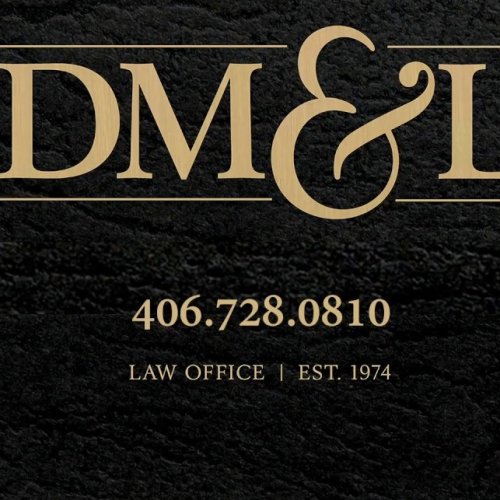Best Drug Crime Lawyers in Hamilton
Share your needs with us, get contacted by law firms.
Free. Takes 2 min.
List of the best lawyers in Hamilton, United States
About Drug Crime Law in Hamilton, United States
Drug-related crimes comprise a significant proportion of offences in Hamilton. Drug crimes are offenses that involve the possession, sale, use, manufacturing, or distribution of illegal substances such as marijuana, cocaine, heroin, methamphetamines, and other substances listed as illicit. It also covers prescription drugs if they're used for non-medical purposes or sold illegally. Given the complexity of drug crime law, it's important that individuals facing such charges understand the implications for both state and federal jurisdictions.
Why You May Need a Lawyer
Navigating the legal system can be overwhelming, especially when facing drug-related charges. Lawyers experienced in drug crime cases can provide defense options, potentially help reduce penalties, negotiate plea bargains, and advocate for the accused in court. Potential situations requiring a lawyer's help may include facing possession, trafficking, or manufacturing charges, violation of drug paraphernalia laws, experiencing drug-related asset forfeiture, or prescription fraud among others.
Local Laws Overview
In Hamilton, like the rest of the United States, drug crimes often fall under state jurisdiction unless they involve crossing state lines, or federal property. However, the penalties for drug crimes can be severe, including imprisonment, fines, probation, or a combination thereof, depending on the quantity of drugs, type of drug, intent (possession vs. distribution), and the offender's past criminal history. The state of Ohio, which includes Hamilton, has punitive drug laws and was one of the earliest states to enact mandatory minimum sentences for drug offenses.
Frequently Asked Questions
What determines if a drug crime is a state or federal offense?
Most drug crimes are state offenses, but it becomes a federal offense if the crime crossed state lines or involved federal property. Any large-scale manufacturing and distribution operations are usually deemed federal offenses.
What are the penalties for drug conviction?
The penalties vary depending on factors like the type and quantity of the drug, whether the crime was possession or distribution, and any previous criminal history. They can range from fines and probation to long prison sentences.
Can evidence be invalidated in a drug crime case?
Yes, if it is proven that the evidence was obtained through illegal means, or if proper procedure was not followed, it may be deemed inadmissible by the court.
What is a drug diversion program?
Drug diversion programs are alternatives to traditional sentencing, often emphasizing rehabilitation and treatment instead of punitive action for first-time or low-level offenders.
Are prescription drugs included in drug offenses?
Yes, illegal use or distribution of prescription drugs can also attract drug offense charges.
Additional Resources
The Ohio State Bar Association offers numerous resources and provides access to lawyers specializing in drug crime law. Similarly, public agencies like the Hamilton County Public Defender's Office provide legal assistance to those who cannot afford private counsel. Lastly, organizations such as the Ohio Recovery Network can assist with substance addiction support and resources.
Next Steps
If you or a loved one need legal assistance with a drug-related offense, the first step should be to seek legal advice promptly. Contact a local lawyer who specializes in drug crime law, and they can guide you through the process, ensure your rights are preserved, and help you explore potential defense options. It is also advised to get informed about your case by utilizing the resources provided by local governmental institutions and organizations.
Lawzana helps you find the best lawyers and law firms in Hamilton through a curated and pre-screened list of qualified legal professionals. Our platform offers rankings and detailed profiles of attorneys and law firms, allowing you to compare based on practice areas, including Drug Crime, experience, and client feedback.
Each profile includes a description of the firm's areas of practice, client reviews, team members and partners, year of establishment, spoken languages, office locations, contact information, social media presence, and any published articles or resources. Most firms on our platform speak English and are experienced in both local and international legal matters.
Get a quote from top-rated law firms in Hamilton, United States — quickly, securely, and without unnecessary hassle.
Disclaimer:
The information provided on this page is for general informational purposes only and does not constitute legal advice. While we strive to ensure the accuracy and relevance of the content, legal information may change over time, and interpretations of the law can vary. You should always consult with a qualified legal professional for advice specific to your situation.
We disclaim all liability for actions taken or not taken based on the content of this page. If you believe any information is incorrect or outdated, please contact us, and we will review and update it where appropriate.








